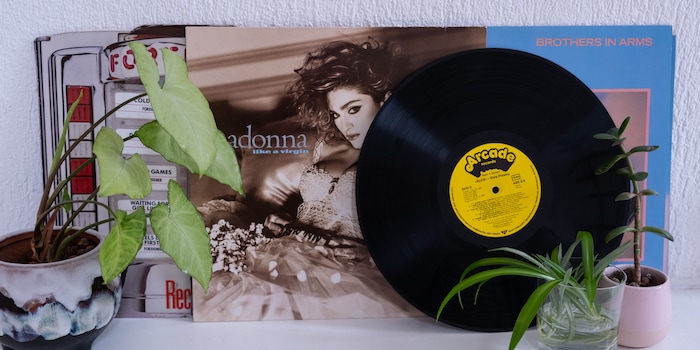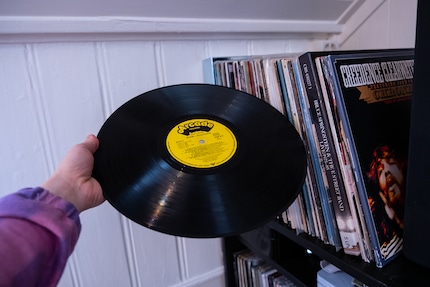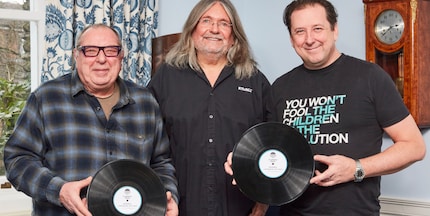
Sugar cane instead of PVC: the environmentally friendly record is here
Vinyl is booming. The music carrier is therefore being produced in large quantities. But the material is harmful to the environment. A vinyl alternative is intended to provide a remedy and offers far more advantages than just the ecological aspect.
My love of music and the environment go hand in hand when I look at the material my cherished record collection is made of: vinyl. It sounds much nicer than plastic and is short for polyvinyl chloride (also known as PVC). The problem: PVC for vinyl records also produces serious pollutants for health and the environment from production to disposal.

Source: Michelle Brändle
The British company Evolution Music estimates the global production of vinyl records at around 180 million units per year. That's around 30,000 tonnes of PVC per year. This doesn't have to be the case - especially if there is a different and better way. The company has therefore been developing "Evovinyl" since 2018 - a plant-based alternative to vinyl.
Plant-based vinyl: the advantages
The material from Evolution Music is made from sugar cane. It is compostable, can be produced more sustainably and has less impact on the environment. Marc Carey, the CEO of Evolution Music explains: "We wanted this project to be as sustainable as possible, from production to disposal. (...) Evolution is working with a team of experts as part of our research and development to ensure that the employees growing the sugar cane are working in a good environment and not using toxic fertilisers."
Carey goes on to explain that, according to tests, 30 per cent of energy could be saved if a production plant were converted to Evovinyl. In addition, pressing a sheet takes 50 per cent less time. That saves an enormous amount of energy.
The material can still be pressed in black and any colour. What's more, Evovinyl does not become statically charged. And anyone who has ever had an LP on a record player knows how annoying the attraction of dust and dirt caused by static electricity can be.
Does compostable material last?
Don't worry, the record won't rot on your shelf. Evolution Music put their LPs through an ageing test in a test facility together with current PVC LPS. Both showed similar deterioration. So if you treat these records as lovingly as your previous ones, you have nothing to fear. Evolution Music even assumes that the sound quality will last longer due to the antistatic properties. However, this assumption will only be confirmed in the wild.
What about the music quality?
According to Evolution Music, the sound quality is excellent. To achieve this, they work with pressing plants, sound engineers and music producers such as Rob Cass from Abbey Road. Currently, the background noises in the run-in area and between the individual tracks are slightly behind the best PVC records. However, this would still make them better than the majority of products on the market. However, the optimisation of the music quality is not yet complete and will be continuously improved.
In addition, Evovinyl was tested by playing it repeatedly over a long period of time. No noticeable difference to PVC was found. The sound quality is therefore maintained even with repeated playback.
What's next?
Evolution Music has spent over five years on research and development to make Evovinyl ready for the market. But the material also needs to find buyers. The British speaker company PMC has now teamed up with Evolution Music and is contributing financially to its commercialisation.

Source: PMC/ Evolution Music
The product is ready and major record companies are willing to participate. Not at all a matter of course: vinyl records have been produced from PVC since the 1980s. After all this time, it's not easy to knock such a tried and tested product off its throne. But nothing has changed for a record presser: Evovinyl can be processed on existing machines. The only thing that needs to be changed is the material. And the surplus from each pressing can be completely recycled.
Ever since I learned how to hold a pen, I've been doodling away in bright colours. Thanks to my iPad, digital art has also become part of my life. That's why I love testing tablets – from the graphic design range to the regular kind. When I feel the urge to express my creativity without lugging lots of equipment, I go for the latest smartphones and start snapping away.
From the latest iPhone to the return of 80s fashion. The editorial team will help you make sense of it all.
Show all